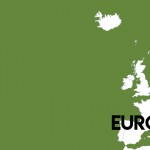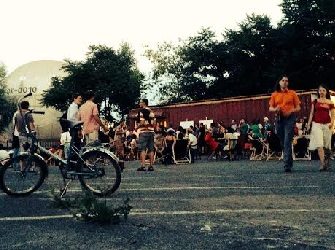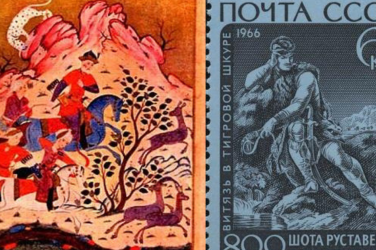For the 50th edition of E&M and, therefore, the 50th edition of HEART, we talked with two Europeans, one younger one older, to think about how European identity, culture, and our understanding of Europe’s history have changed or stayed the same.
E&M: Hi! Please tell us and our readers a little about yourself.
Irma (63), the Netherlands: I was born in what is now Kosovo, but at the time my land was still part of Yugoslavia, and 24 years ago I fled my country and started living in the Netherlands. So my life has been shaped by some of the major events in Europe’s recent history. I was in the beginning of my thirties when the Soviet Union fell apart, and this changed my life completely.
We came to the Netherlands just before the war started and just before the big wave of refugees that subsequently came in. In the beginning it was difficult to adapt to a new country, the flat Dutch landscape is so different from what I was used to! Nowadays I love it here, and I love to go for walks in the polder [typical Dutch flat landscape, land that has been retrieved from the sea].
Charlotte (29), Germany: I’m from Germany, a German with a migration background [person with one or two (grand)parents born outside of Germany]. I’m currently working as a research assistant at Bonn University and just started a PhD programme there. Before that, I worked for a German development corporation.
E&M: What does Europe mean to you?
Irma: To me, Europe is a place of peace. I think it is very hard for people nowadays to understand how important peace is. My children and their generation have never understood the threat of war, that things can become violent, that you might have to run for your life. And I think this is why so many people today are skeptical about the EU. I am not. I think Europe is very important and it is great if you can live your life in peace.
Also it is very interesting to travel around Europe and be able to experience a lot of different cultures, food, languages, and still feel “at home” in a certain way. I don’t mind if you are Italian, or German, or Romanian for that matter, to me we are all Europeans and that is what is important. But, of course, there are many people that see this differently – and I think that we need to take better care of each other to make sure that we do not lose this connection that we have across Europe.
Charlotte: Europe, for me, means a lot of freedom, because you can so easily travel around and work in other European countries. It also stands for a certain sense of solidarity, that we have shared values. This is something you can really notice when you travel. I think that especially people in our generation have a similar world view, regardless of where they’re from in Europe.
E&M: Do you feel European?
Irma: I don’t think I would call myself a European. I always say I am from Kosovo but now I am Dutch. I feel Dutch. My children grew up here, have their lives here, my grandchildren will be Dutch. Which makes me sad sometimes, because I wish they were more connected to Kosovo. But it’s better this way.
But in the end it doesn’t matter where you come from, I feel solidarity with all different people across Europe. I see Europe as a big family of very different people that still have something in common. Of course, my background plays an important role here, as I have had to learn to deal with living in a different country than the one I was born. So I learned very early that where you come from does not really matter, it is more important what you do with the opportunities in life and how you try to always move forward.
Charlotte: Actually, I think of myself more as German than as European, especially in Germany. But when I’m travelling abroad, I do feel very European. This happened to me the most when I was living and travelling in Southeast Asia, because there, I was often told that the way I act, how I appear, is very European. And even though I don’t necessarily look ‘German’, I still get identified as European, surprisingly enough.
And I do think something like a ‘European identity’ exists, that we share a certain set of values, we are less aware of and concerned with borders, there is a sense of solidarity. But I also think that people still feel allegiance to their respective home countries.
I see Europe as a big family of very different people that still have something in common.
E&M: Now, onto matters of the heart – what do you love about Europe?
Irma: What I really love about Europe is that you just go from one country to another and it is no big deal. Open borders. I think that is really amazing, and it’s very important to make people feel welcome, and valued. When I was growing up, we were always told that we need to fight for our land, that we need to be proud of our country and our family. And I don’t really feel this here. When we drive east, we cross the border with Germany and you don’t even notice. I really love that, I believe this is the only place in the world where you can do that.
Charlotte: What I think I like the most is that it is very diverse. But yet, it also has a sense of unity, I don’t know. It is easy to meet people from other countries because we have similar values and mindsets. From my experience so far, I can say that people, at least our generation, people who are also travelling a lot, share lots of similarities.
I do think something like a ‘European identity’ exists, that we share a certain set of values, we are less aware of and concerned with borders, there is a sense of solidarity.
E&M: And what do you hate?
Irma: To me it is very painful to hear people speak badly about immigrants coming to Europe, or coming to the Netherlands. Sometimes people don’t even realize that I’m an immigrant myself, they get used to my accent and start to believe that I am just Dutch, or maybe they simply forget. And then it is really painful when people talk like that about other immigrants. This has become more prevalent in the last few years.
Charlotte: What I like the least are all the things that are threatening us. So, right-wing groups, who’ve been gaining more traction and who call European identity into question. And for example, Brexit, or the discussions about refugees. You can notice that the European Union is changing and being called into question. And within the EU, there are some countries who are “winners” and some who are “losers”, it is less unified, and I think that this is a real challenge for the European identity and solidarity.
E&M: Europe’s past has often been cruel and violent, even deadly. Have we learned from it?
Irma: Absolutely, because now we live in a peaceful place. Maybe some people haven’t learned, but I think, in general, things are very different now. Even when I am back home [in Kosovo], I notice how people, especially the younger generation, do not think about these things the same way anymore. People want to be part of Europe, and want to travel, and want to have a normal, quiet life. People don’t want war. This is really a beautiful thing and I hope that this will continue for my children and my grandchildren as well.
Charlotte: I would say we haven’t learned from our past. If you look at the discussions about refugees, for example, of countries refusing to take them in, then I find that Europe is still very deadly. If you look at the numbers of refugees dying in the Mediterranean, or if you consider that rescue ships are not allowed to go out anymore and safe people, or the conditions in Moria… I ask myself why European identity and European values are no longer upheld in places like that. It’s a shame: on the Greek islands, where people are not from Europe, suddenly European values no longer apply. And there are people living in Europe under the absolute worst conditions! So Europe’s past was deadly, but Europe’s present is deadly, too, at least for those who are excluded.
I ask myself why European identity and European values are no longer upheld in places like that.
E&M: What kind of ‘Europe’ would you like to live in in the future?
Irma: Sadly I think there are still places in Europe today that have very deep problems. When you live in the Netherlands, it’s sometimes difficult to understand that the life of other people can be very hard, and very negative. I see on the news how they talk about the refugees in Greece for example, and now with the fire [on Moria], those are people too, and they are going through a very, very difficult time in their life. And it saddens me that people are just not very empathetic. So I wish that we would have more solidarity for each other, especially when other people are suffering. I think it’s very problematic if we are not able to understand the problems of other countries in Europe, if we think that “those problems are not my problems”. Here in the Netherlands we are very lucky, but this is not the case for everyone.
Charlotte: I want more solidarity, that we provide more support for each other. Humanity, fraternity and sisterhood, whatever you want to call it. And empathy, those are the values that I’d hope for, that I still somehow associate with Europe. I’m hoping that our generation can push for a change, that right-wing movements get less support, and that we can have a strong, humane Europe again. But, of course, this is all rather utopian.
Many thanks to Irma and Charlotte. Answers have been edited for brevity and clarity. The interviews were conducted separately and answers were placed together ex post facto.










